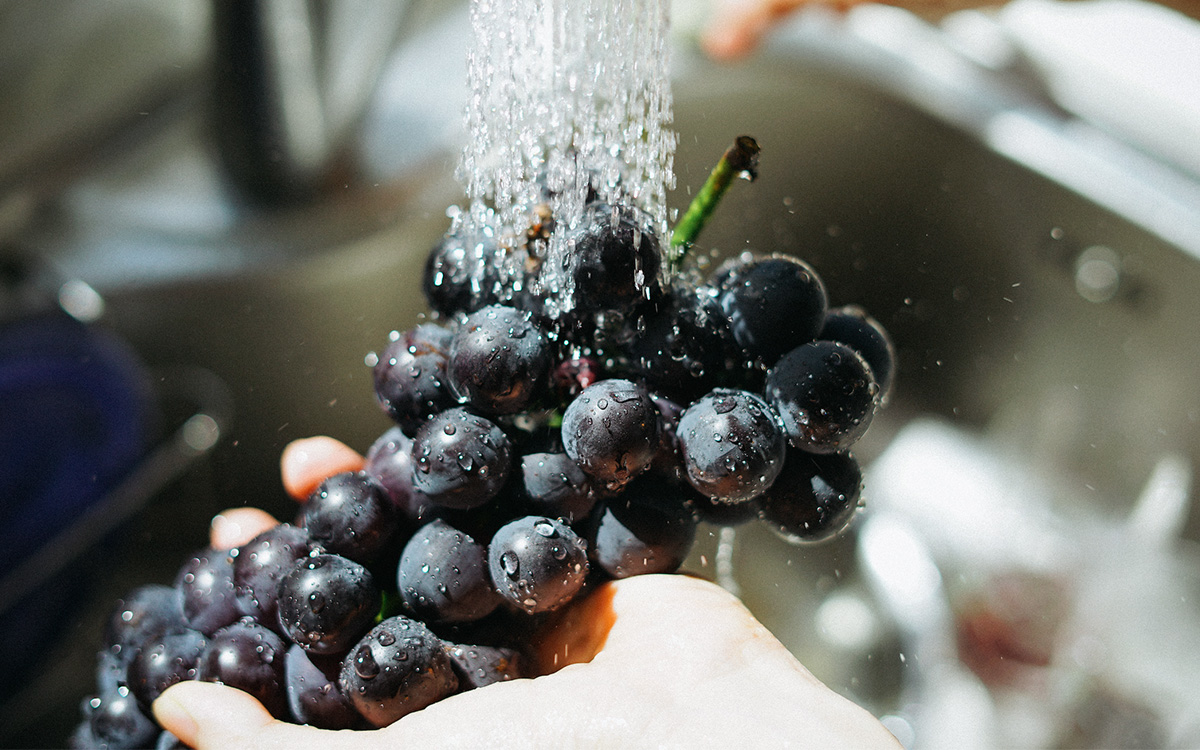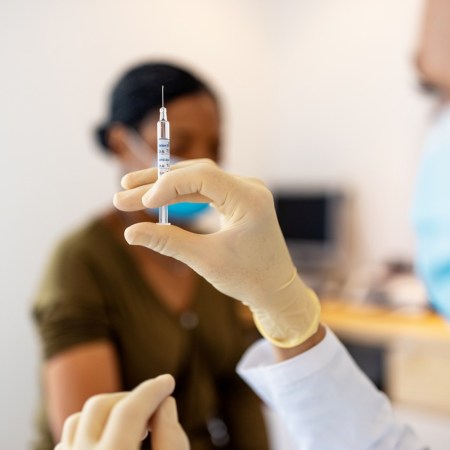Before I bite into an apple, I always run it under a faucet for an arbitrary stretch of time. If I had to put a number on it, I’d call it seven seconds. That goes for grapes, peaches, cucumbers and carrots, too. At this point it’s more or less a subconscious ritual; they all get the shower and pat down treatment, then I move on with my day.
Last week, it occurred to me that I have no clue what this process is actually accomplishing. Am I scrubbing away dirt? Chemicals? Is the whole operation nullified by the fact that I rarely wash my hands before washing the fruit? And how about the length of time? Is a quick spritz really effective against whatever I’m trying to get off my fruit? Should I be using more water or paper towels? Would that be wasteful for the environment?
Excuse me, for injecting an such a casual, commonplace activity with a blast of neurosis. But when everyday habits are left unevaluated, it can easily spell bad news for the environment (single-use plastic) or your personal wellness (poor posture). Information is king, it helps us live more thoughtful lives, and I’m smart enough to know when I don’t have the answers. Thus, for illumination on the world of fruits and faucets, I reached out to a bevy of nutritionists and food safety professionals, to hear their thoughts on washing down our fruits and vegetables.
Spoiler alert: They agreed, unilaterally, that washing is a good idea. But they added a bit of nuance to the topic, expounding on how fruit gets contaminated in the first place, and more effective methods for hosing it down before it heads to your mouth. Find their five rules below.
1. Farm to table isn’t always a positive
“Contaminated water may be sprayed on fruits and vegetables before harvesting, while after harvesting, fruits and vegetables are often transported on trucks that have also hauled animals. If the truck wasn’t properly cleaned and disinfected, more contaminants can spread. ” — STOP Foodborne Illness
2. Cutting into the fruit doesn’t help
“You have no idea what is on that produce. There could be bacteria from the hands of people who handled it in the grocery store, there could be waxes, there could pesticides. When you cut into a piece of fruit, like a melon for example, you contaminate the entire fruit with whatever was on the surface. To reduce waste in my kitchen, I use cloth towels to wipe down fruit, and wash them in the laundry.” — Debbie Meyer, Co-CEO of Housewares America
3. Try out a more involved process when you have the time
“Even organically grown produce can be affected by toxins from pesticides, when wind or other forces of nature transfer undesired chemicals from conventionally raised produce to organic crops. A recent study in the Journal of Agricultural and Food Chemistry reported that soaking apples in a mix of water and baking soda for 12 to 15 minutes helps remove upwards of 80 percent of certain pesticides, including thiabendazole. Simply fill a large bowl or your sink with water and stir in one percent normal baking soda. You’ll need about one teaspoon of baking soda per two cups of water. Though the study used apples, I use this approach with pears, grapes, and other sturdier produce. Berries may not hold up well to the soaking process, but always give them a good rinse before eating and when possible, choose organic to reduce your toxin load.” — Kristin Koskinen, RDN, LD, CD
4. Bananas need attention, too
“There could be some sort of bacterial contamination anywhere along the line from the producer, the transportation, the storage location, or in the store. I would recommend continuing to wash your fruit (including fruit where we don’t eat the peel, like bananas) as a good idea to eliminate dirt, bacteria, or any surface pesticide residue.” — Melissa Morris, ISSN certified nutritionist
5. Check for a “pre-washed” label
“Washing fruits is essential for removing potential bacterial contaminants from their surface. Significant food-borne infections can be avoided this way including related to raspberries, strawberries, and blueberries. If a fruit is “pre-washed” it doesn’t need to be washed again, however.” — Amesh A. Adalja, Johns Hopkins Center for Health Security
Whether you’re looking to get into shape, or just get out of a funk, The Charge has got you covered. Sign up for our new wellness newsletter today.


















